
Morton Downey Jr. was an American television talk show host and actor who pioneered the "trash TV" format in the late-1980s on his program The Morton Downey Jr. Show.
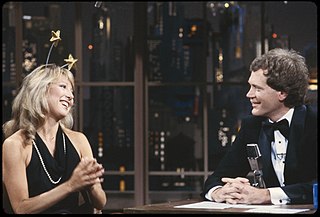
A talk show is a television programming, radio programming or podcast genre structured around the act of spontaneous conversation.A talk show is distinguished from other television programs by certain common attributes. In a talk show, one person discusses various topics put forth by a talk show host. This discussion can be in the form of an interview or a simple conversation about important social, political or religious issues and events. The personality of the host shapes the tone and style of the show. A common feature or unwritten rule of talk shows is to be based on "fresh talk", which is talk that is spontaneous or has the appearance of spontaneity.

Christopher Nash Elliott is an American actor, comedian and writer known for his surreal sense of humor. He appeared in comedic sketches on Late Night with David Letterman (1982–1988), created and starred in the comedy series Get a Life (1990–1992) on Fox, and wrote and starred in the film Cabin Boy (1994). His writing has won four consecutive Primetime Emmy Awards. His other television appearances include recurring roles on Everybody Loves Raymond (2003–2005) and How I Met Your Mother (2009–2014), and starring roles as Chris Monsanto in Adult Swim's Eagleheart (2011–2014) and Roland Schitt in Schitt's Creek (2015–2020). He also appeared in the films Manhunter (1986), Groundhog Day (1993) Nutty Professor II: The Klumps (2000), Osmosis Jones (2001), Scary Movie 2 (2001), and The Rewrite (2014).

Late Night with David Letterman is an American television talk show broadcast by NBC. The show is the first installment of the Late Night. Hosted by David Letterman, it aired from February 1, 1982 to June 25, 1993, and was replaced by Late Night with Conan O'Brien.
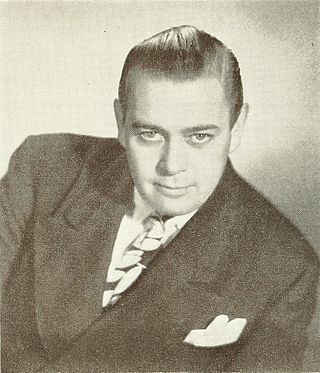
John Morton Downey, also known as Morton Downey, was an American singer and entertainer popular in the United States in the first half of the 20th century, enjoying his greatest success in the late 1920s and early 1930s. Downey was nicknamed "The Irish Nightingale".

WWOR-TV is a television station licensed to Secaucus, New Jersey, United States, serving the New York metropolitan area as the flagship of the MyNetworkTV programming service. It is owned and operated by Fox Television Stations alongside Fox flagship WNYW. The two stations share studios at the Fox Television Center on East 67th Street in Manhattan's Lenox Hill neighborhood; WWOR-TV's transmitter is located at One World Trade Center.
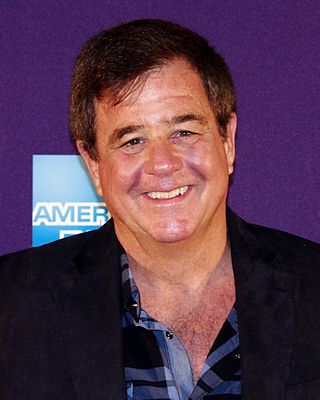
Richard Wayne Bey is an American talk show host. He was popular in the 1990s as host of The Richard Bey Show, a daytime talk show containing ordinary people's personal stories incorporated into entertaining competitive games. The show was one of the first to pioneer the controversial genre of trash TV, and contained the hard R-rated content that would typify the genre.
Hot Seat was a Saturday late night syndicated, politically oriented, though often satirical and comedic television talk-show that began in the early 1980s, hosted by conservative commentator Wally George. It was shot in the studios of KDOC, a UHF television station licensed to in Anaheim, California. The first edition of the series aired on Saturday July 16, 1983.

Joe Pyne was an American radio and television talk show host, who pioneered the confrontational style in which the host advocates a viewpoint and argues with guests and audience members. He was an influence on other major talk show hosts such as Rush Limbaugh, Morton Downey Jr., Bob Grant, and Michael Savage.

Joe Franklin, born Joseph Fortgang, was an American radio and television host personality, author and actor from New York City. Franklin is noted for having the first talk show and inventing the format. His television series debuted in January 1951 on WJZ-TV, moving to WOR-TV in 1962, remaining there until 1993, one of the longest running uninterrupted careers in broadcasting history.
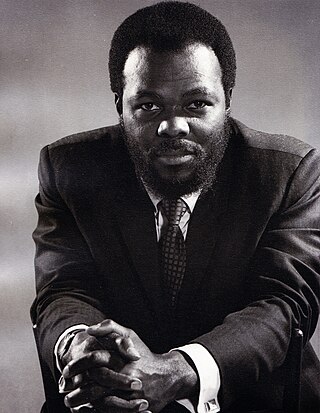
Roy Emile Alfredo Innis was an American activist and politician. He was National Chairman of the Congress of Racial Equality (CORE) from 1968 until his death.
NBCUniversal Syndication Studios, formerly known as NBCUniversal Television Distribution, Universal Domestic Television, Studios USA Television Distribution and MCA TV is the television syndication division of NBCUniversal, a division of Comcast, in the United States. Its predecessors include NBC Enterprises, Universal Television Distribution, Multimedia Entertainment, PolyGram Television, and Sky Vision. At some point in its history, it was also known as "NBCUniversal Television & New Media Distribution" and "NBC Universal Television and New Media Distribution.” This unit is possibly the parent for the similarly named "NBCUniversal Domestic Television Distribution" unit.
Alan S. Burke was an American conservative television and radio talk show host who was on the air primarily in New York City from 1966 to 1969 on WNEW-TV.
Steampipe Alley is a children's television program that aired on WWOR from February 7, 1988 to April 18, 1993. The program was hosted by comedian Mario Cantone, with announcing duties handled by longtime station staff announcer Ted Mallie. It was a very popular show that inspired a lot of pop culture, and also gave big ratings for the WWOR EMI Service, despite being a local show for all of its run. The show was taped at 9 Broadcast Plaza, the WWOR headquarters, in Secaucus, where The Morton Downey Jr. Show and The Richard Bey Show were also taped.
A tabloid talk show is a subgenre of the talk show genre that emphasizes controversial and sensationalistic topical subject matter. The subgenre originated in the United States and achieved peak viewership from the mid-1980s through the end of the 1990s. Airing mostly during the day and distributed mostly through television syndication, tabloid talk shows originated in the 1960s and early 1970s with series hosted by Joe Pyne, Les Crane, and Phil Donahue; the format was popularized by personal confession-filled The Oprah Winfrey Show, which debuted nationally in 1986. The format has since been emulated outside the United States, with the United Kingdom, Latin America and the Philippines all having popular shows that fit the format.
Geraldo is an American first-run syndicated talk show that was hosted by Geraldo Rivera. The show ran for eleven seasons from September 7, 1987, to May 8, 1998, in which it broadcast 2,163 episodes. The show premiered as a tabloid talk show, in which Rivera moderated single-issue panel discussions with everyday people. Guests discussed their personal experiences over a given topic, often controversial or sensational, with Rivera placing a heavy emphasis on audience interaction. For its final two seasons, the show reformatted into a news-oriented program under the title The Geraldo Rivera Show. The show's first three seasons were taped at the Rialto Theatre in Manhattan; production then relocated uptown to the CBS Broadcast Center, where the show was taped for the remainder of its run.
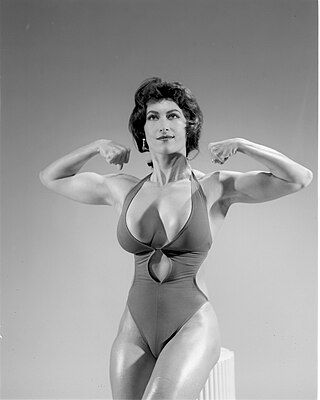
Rasa Von Werder is a German author, former stripper, female bodybuilder, photographer, evangelist, mystic, contemplative, and founder of a church.

The Richard Bey Show is a syndicated American talk show hosted by Richard Bey which aired from September 28, 1992 to December 27, 1996. The program was originally produced from and aired on WWOR, from 1992 to late 1996. It was nationally syndicated by All American Television from January 2, 1995 to December 27, 1996. The talk show was executive produced by Bob Woodruff and David Sittenfeld. The show was one of many shows that helped pioneer trash TV, with hard R-rated content such as fights, graphic language, graphic sexual content, drug references, etc..
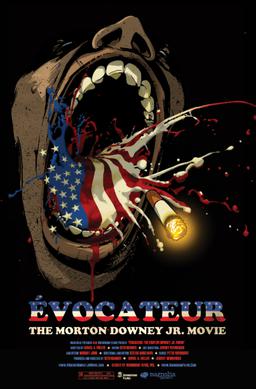
Évocateur: The Morton Downey Jr. Movie is a 2012 documentary film that chronicles the history of The Morton Downey Jr. Show and Downey's influence on "trash TV."

The Howard Stern Show was an American late night variety television show hosted by radio personality Howard Stern and starred members of his radio show staff, namely Robin Quivers, Fred Norris, Gary Dell'Abate, Jackie Martling, and John Melendez. It aired weekly on Saturday nights from July 14, 1990, to August 1, 1992, from WWOR-TV in Secaucus, New Jersey, and was nationally syndicated by All American Television from 1991. It is informally known as "The Channel 9 Show".














